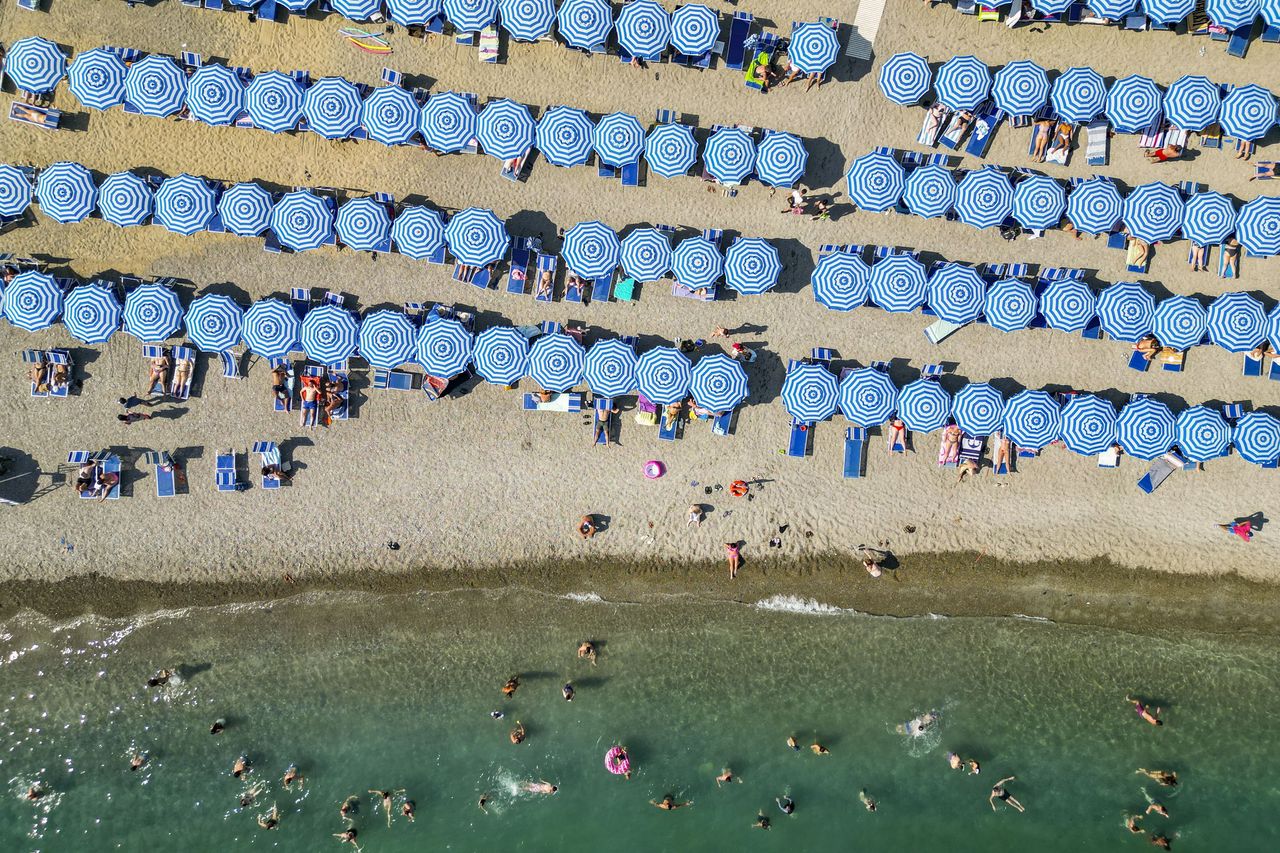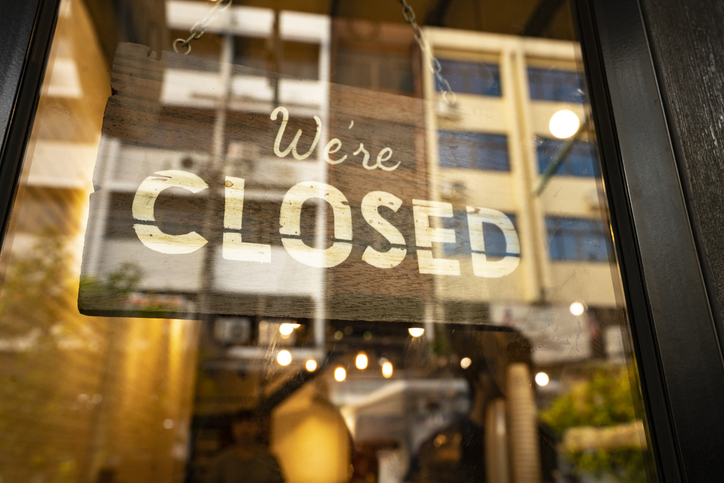The European Hot Spots Struggling With the Tourist Masses
Italy, Spain and Greece are on track for a record-setting tourism season, and not everyone is happy about it; ‘It’s too much’
MONTEROSSO AL MARE, Italy—A worker shouts in Italian, English and French, directing throngs of tourists through the small train station. Wild gesticulations, a fluorescent yellow vest and a booming voice help her to stand out on the packed platform.
Swarms of people holding backpacks and water bottles squeeze past each other, some heading for a departing train, others for the exit and a stunning view of the sea and cliffs that have made the villages of Italy’s Cinque Terre a global tourist draw.
Outside the station, lines form at food shops. Signs say all the umbrellas and reclining chairs are occupied at the pay-only beach on Monterosso’s waterfront. Narrow alleyways are crammed with tourists eating gelato or sipping bubble tea.
“Tourism is necessary, it’s almost all we have here, but it’s too much,” said Angela Costa, a longtime Cinque Terre resident.
Italy’s tourist season started with a record number of visitors over Easter. In the Cinque Terre, the congestion was so bad that local officials made the area’s famous hiking trails one-way on the busiest days. The situation repeated itself over several weekends in May and June.
“Easter was crazy, and now it’s ramping up again,” said David Cefaliello, who works in a cafe in Corniglia, another of the five Cinque Terre villages. “We aren’t at pre-Covid levels yet, but I suspect that will change in a few weeks.”
Millions of Europeans and Americans are engaging in so-called revenge tourism, making up for lost travel time during the pandemic-affected years of 2020-22. Millions of Chinese tourists are expected to visit Europe this summer and fall after the elimination of China’s travel restrictions.
Italy is likely to surpass the record number of tourists and overnight stays set in 2019, before Covid struck, according to market research firm Demoskopika. Arrivals in the period from June to September are expected to be 3.7% higher than the same period in 2019 and 30% more than a decade ago. Italy’s Tourism Ministry has also said it expects a record year, as have Spanish and Greek officials.
All those visitors are giving a welcome boost to Southern Europe’s economies, which depend heavily on tourism. In Italy, more than 10% of the economy is linked to travel and tourism, compared with 15% in Spain and 19% in Greece, according to the World Travel and Tourism Council. In France and the U.S., the level is around 9%.
But locals are increasingly asking how much the Cinque Terre, Barcelona and Athens can take. Discontent is also rising in some places, spurring local efforts to rein in the tourist hordes.
In Portofino, a small upscale village on the Italian Riviera popular with the international jet set, police are fining people who block foot traffic to take selfies.
In 2024, Venice plans to introduce an entry fee to the city on the busiest days of the year, according to the mayor’s office.
In Barcelona, locals hang signs saying “tourists are terrorists,” while in Athens, residents complain about how the spread of Airbnb rentals for tourists is driving up rents and displacing Greeks from the city centre.
In May, about 10,000 short-term rental properties were available in Athens, almost a quarter more than in May 2018, according to market-research firm AirDNA. Demand for short-term rentals in Greece increased 62% in May compared with the same month last year, the firm said.
The Italian Alpine region of Alto Adige has capped the number of beds available for tourists in private properties to fight the proliferation of short-term rentals.
The crowds are spreading far beyond the Mediterranean. On the coast of Normandy in northern France, authorities have turned people away from Mont Saint-Michel, the tidal island topped with an abbey. The Louvre museum in Paris has put a daily limit on the number of visitors.
The French government is planning an advertising campaign to encourage people to travel at different times of the year and to consider less-famous destinations.
The flow of tourists to France has held strong even as the country has been racked with protests, including months of demonstrations over President Emmanuel Macron’s decision to raise the age of retirement. Now the country is grappling with nightly riots following the shooting of a teenager by police.
Luxury hotels in Europe are enjoying the boom, but many are looking for new ways to keep their high-paying clients happy despite the masses of tourists.
“We are always looking for something we can offer that will avoid the crowds, like hiking trails that are less well known, a private boat trip to Capri or a wine-tasting tour,” said Pietro Monti, head of marketing at the five-star Hotel Mediterraneo near the Amalfi coast, where rooms cost an average of about $1,200 a night. “But when it’s the high season, especially a record year like this, some crowding is inevitable.”
Crowds are hard to avoid in Vernazza, the Cinque Terre village that sits just south of Monterosso. On the rocks surrounding the small port, sunbathers battle for space with children kicking a soccer ball and people jumping into the sea. The crush on the rocks grows when boats arrive from one of the nearby towns.
Juli Eger, who was sipping wine and eating focaccia on a recent morning in Monterosso, while ignoring the crowds around her, finds her own workarounds.
“We were just in Venice and if you walk around very early in the morning, you only have to share the city with people taking engagement photos,” said Eger, who is traveling with her mother, husband and teenage son. “If you make Venice your first stop you’ll be jet-lagged, so getting up at 5.30 in the morning won’t even be a problem.”
—Allison Pohle and Stacy Meichtry contributed to this article.
 Copyright 2020, Dow Jones & Company, Inc. All Rights Reserved Worldwide. LEARN MORE
Copyright 2020, Dow Jones & Company, Inc. All Rights Reserved Worldwide. LEARN MORE
This stylish family home combines a classic palette and finishes with a flexible floorplan
Just 55 minutes from Sydney, make this your creative getaway located in the majestic Hawkesbury region.
Impact investing is becoming more mainstream as larger, institutional asset owners drive more money into the sector, according to the nonprofit Global Impact Investing Network in New York.
In the GIIN’s State of the Market 2024 report, published late last month, researchers found that assets allocated to impact-investing strategies by repeat survey responders grew by a compound annual growth rate (CAGR) of 14% over the last five years.
These 71 responders to both the 2019 and 2024 surveys saw their total impact assets under management grow to US$249 billion this year from US$129 billion five years ago.
Medium- and large-size investors were largely responsible for the strong impact returns: Medium-size investors posted a median CAGR of 11% a year over the five-year period, and large-size investors posted a median CAGR of 14% a year.
Interestingly, the CAGR of assets held by small investors dropped by a median of 14% a year.
“When we drill down behind the compound annual growth of the assets that are being allocated to impact investing, it’s largely those larger investors that are actually driving it,” says Dean Hand, the GIIN’s chief research officer.
Overall, the GIIN surveyed 305 investors with a combined US$490 billion under management from 39 countries. Nearly three-quarters of the responders were investment managers, while 10% were foundations, and 3% were family offices. Development finance institutions, institutional asset owners, and companies represented most of the rest.
The majority of impact strategies are executed through private-equity, but public debt and equity have been the fastest-growing asset classes over the past five years, the report said. Public debt is growing at a CAGR of 32%, and public equity is growing at a CAGR of 19%. That compares to a CAGR of 17% for private equity and 7% for private debt.
According to the GIIN, the rise in public impact assets is being driven by larger investors, likely institutions.
Private equity has traditionally served as an ideal way to execute impact strategies, as it allows investors to select vehicles specifically designed to create a positive social or environmental impact by, for example, providing loans to smallholder farmers in Africa or by supporting fledging renewable energy technologies.
Future Returns: Preqin expects managers to rely on family offices, private banks, and individual investors for growth in the next six years
But today, institutional investors are looking across their portfolios—encompassing both private and public assets—to achieve their impact goals.
“Institutional asset owners are saying, ‘In the interests of our ultimate beneficiaries, we probably need to start driving these strategies across our assets,’” Hand says. Instead of carving out a dedicated impact strategy, these investors are taking “a holistic portfolio approach.”
An institutional manager may want to address issues such as climate change, healthcare costs, and local economic growth so it can support a better quality of life for its beneficiaries.
To achieve these goals, the manager could invest across a range of private debt, private equity, and real estate.
But the public markets offer opportunities, too. Using public debt, a manager could, for example, invest in green bonds, regional bank bonds, or healthcare social bonds. In public equity, it could invest in green-power storage technologies, minority-focused real-estate trusts, and in pharmaceutical and medical-care company stocks with the aim of influencing them to lower the costs of care, according to an example the GIIN lays out in a separate report on institutional strategies.
Influencing companies to act in the best interests of society and the environment is increasingly being done through such shareholder advocacy, either directly through ownership in individual stocks or through fund vehicles.
“They’re trying to move their portfolio companies to actually solving some of the challenges that exist,” Hand says.
Although the rate of growth in public strategies for impact is brisk, among survey respondents investments in public debt totaled only 12% of assets and just 7% in public equity. Private equity, however, grabs 43% of these investors’ assets.
Within private equity, Hand also discerns more evidence of maturity in the impact sector. That’s because more impact-oriented asset owners invest in mature and growth-stage companies, which are favored by larger asset owners that have more substantial assets to put to work.
The GIIN State of the Market report also found that impact asset owners are largely happy with both the financial performance and impact results of their holdings.
About three-quarters of those surveyed were seeking risk-adjusted, market-rate returns, although foundations were an exception as 68% sought below-market returns, the report said. Overall, 86% reported their investments were performing in line or above their expectations—even when their targets were not met—and 90% said the same for their impact returns.
Private-equity posted the strongest results, returning 17% on average, although that was less than the 19% targeted return. By contrast, public equity returned 11%, above a 10% target.
The fact some asset classes over performed and others underperformed, shows that “normal economic forces are at play in the market,” Hand says.
Although investors are satisfied with their impact performance, they are still dealing with a fragmented approach for measuring it, the report said. “Despite this, over two-thirds of investors are incorporating impact criteria into their investment governance documents, signalling a significant shift toward formalising impact considerations in decision-making processes,” it said.
Also, more investors are getting third-party verification of their results, which strengthens their accountability in the market.
“The satisfaction with performance is nice to see,” Hand says. “But we do need to see more about what’s happening in terms of investors being able to actually track both the impact performance in real terms as well as the financial performance in real terms.”
This stylish family home combines a classic palette and finishes with a flexible floorplan
Just 55 minutes from Sydney, make this your creative getaway located in the majestic Hawkesbury region.






















